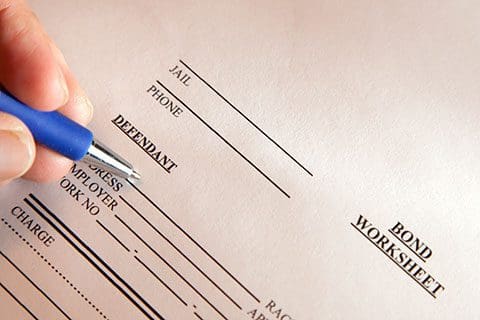
If you have been arrested and are facing a bail hearing, it can be a confusing and stressful time. Understanding the bail process can help.
What is a bail hearing?
A bail hearing is a specific type of court process where a judge will determine if a person accused of criminal charges will be allowed to be released from jail awaiting the outcome of the charges.
If a person is released on bail and does not follow the conditions of their release, they can be re-arrested and charged, commonly known as “breaches” or “breaching”, referring to a breach of conditions.
What is considered during the bail hearing?
The judge will balance the needs of the individual with the safety of the community and the risk that the accused will become re-involved if released.
Courts will look at the accused person’s financial resources, including the ability to make a cash deposit to the Court as a type of assurance the person will attend all their court dates if they get released. This money remains with the court until the end of the legal process. If you are wondering whether you get bail money back, the money can be returned if the conditions are followed. If conditions are not followed, the Crown or the Court can seek to keep the deposit.
The Court might also consider a promise to pay as a condition of release. It is a promise by an accused that if they breach their conditions, they will pay that money to the court. Unlike a deposit, it is not money that must be paid to be released from jail. If a breach of conditions is proven, the Crown or the court may seek that money. If there is never a breach, no money will ever need to be paid.
Courts may consider involving a surety. A surety is a promise to pay made by another person willing to act as a supervisor to ensure the accused is following their conditions. If a surety is not confident an accused is following their conditions, they can “render” as a surety, which is effectively reporting the accused and ending their duties as surety. If a surety renders, the accused is breaching their conditions and should turn themselves in. If a breach is proven and the surety did not render, the Crown or the court may seek the money promised by the surety. If there is never a breach, no money will ever need to be paid.
Possible outcomes from a bail hearing
Certain conditions can also be set when bail is approved. Conditions may include:
- Keep the peace and be of good behavior;
- Reside at a specific address and not move without permission of the Court;
- A no-contact or no attendance order against any alleged victims or co-accused;
- Abstain from alcohol and/or attend drug and alcohol testing;
- Curfews and other requirements.
The Manitoba Courts website is a great resource for answers to common legal questions, offers guides for self-represented persons, and provides background and contact information for each Manitoba court level and locations across the province.
Like most websites, including the one you are currently visiting, the Manitoba Courts site is intended for information only. If you’re facing charges, Pollock & Company can help. Our experienced criminal defence team will evaluate your case and ensure your side of the story is heard with a strong, fair legal defence.
